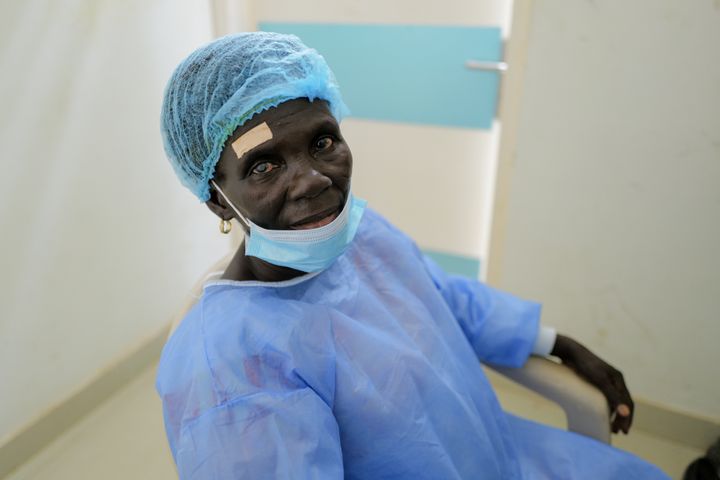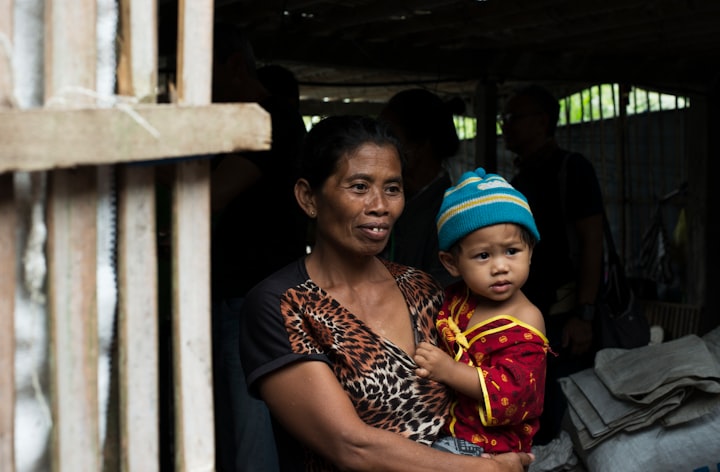Blindness In Women | Tej Kohli & Ruit Foundation

There are 39 million blind people in the world and 64% are women. Females account for nearly 75% of those suffering from cataract blindness and, a lot of the time, do not receive surgery at the same rate as men.
The Tej Kohli and Ruit Foundation has set up outreach camps across Nepal and has seen many women and girls suffer from needless blindness. Throughout developing countries, women are often expected to tend to the house and look after children whilst males seek employment to earn an income. When a woman becomes blind, other members of the family have to pick up the responsibilities that are left behind due to blindness preventing a woman from doing anything at all.
On top of this, women and young girls often face the burden of caring for other family members who may be blind. The care needed often disenfranchises them from employment or education leading to a life of poverty.
There are a number of reasons that cause women to be less likely to undergo cataract surgery. These include a number of cultural and socio-economic barriers which prevent women from accessing surgery such as restricted autonomy, high costs of travel to reach district hospitals and limited resources within households. Whilst there are thousands of men who are also in desperate need of surgery, the Tej Kohli and Ruit Foundation noticed that there were often more women suffering from cataract blindness.
For example, when the Tej Kohli and Ruit Foundation set up an outreach microsurgical eye camp (OMEC) in Haupur, Bardiya in Nepal it was noted that more women were living with needless blindness than men living in the same region. Overall, 76 surgeries were performed at the camp with 49 of the surgeries for women. This accounts for around two-thirds of the number of people needing to have their cataracts removed.
While public health issues generally do not discriminate, preventable blindness does, especially so in impoverished communities. Poverty and preventable blindness are directly interlinked - needless blindness is both a cause and consequence of extreme poverty. While barriers differ across communities, the main reasons behind inequitable access to eye health services between men and women are usually attributed to the family's socio-economic status:
Lack of education: Lack of education implies that women aren’t privy to the information that their blindness can be cured.
Difficulty in accessing household finance: Women and their sight are treated as secondary across several communities. In many instances, one will find households are willing to invest in the cure of the surgery of men owing to the fact that they are breadwinners, but not women. According to a report by the International Agency for the Prevention of Blindness (IAPB), a study found that cataract surgical coverage (CSC) could be 1.2 to 1.7 times higher for men than women.
Inability to travel: Across many communities, women are discouraged from travelling alone; therefore they are unable to reach out to hospitals, which are usually a long distance from their villages.
The above reasons suggest that to cure the developing world's needlessly blind women, eye care must be taken to their communities. The Tej Kohli and Ruit Foundation is insistent on this, and during its screening efforts emphasizes the increased uptake of women towards such services.
In June 2022, of the 1,607 people screened in Bardiya District, a majority of them were women, all arriving at the screening camp with one form of visual impairment or the other. Of the 1,607 people screened, the Tej Kohli and Ruit Foundation identified 76 people living with cataract blindness, of which 49, i.e. 65% were women.
Of the many women screened and cured, they echoed the same reasons for their reasons for continuing to live a life of needless blindness. For example, 68-year-old Ramjaniya Tharu of Haupur in Bardiya District knew she was visually impaired. She meant to get her eyes checked at the local community eye centre, however, never had the opportunity owing to her household responsibilities.
On 8th June 2022, a Tej Kohli and Ruit Foundation screening team set camp in their village and determined Ramjaniya Tharu was living with needless blindness. She was subsequently invited for surgery and is currently living a life free from visual impairment.
Similarly, on 9th June 2022, as the Tej Kohli and Ruit Foundation team began setting up a screening camp in Motipur Village, Bardiya District, of the people who had started appearing at the camp for their free eye checkups, a majority of them were women who were earlier unable to have their eyes assessed. Here too, of the 13 identified as living with cataracts, eight were women.
Gender inequality is a fundamental human right, and a major United Nations Sustainable Development Goal (SDG5). Achieving gender equality can make a direct contribution to other Sustainable Development Goals - for example, the number one United Nations Sustainable Development Goal to reduce extreme poverty.
Within the first year of intervention, it was also seen that the number of women, who needed surgery, compared to men was significantly higher overall. 64% of women from low-income countries suffered from visual impairments.
With the initiative to cure more and more people worldwide, the Tej Kohli and Ruit Foundation are confident that inequality in blindness and healthcare will be significantly reduced.
For more information on Tej Kohli as a philanthropist visit tejkohliruit.com and to read more of his views go to his Medium.
To read about Tej Kohli as an investor visit Kohli Ventures.
Find out more about Tej Kohli: Tej Kohli the technologist investing in human triumph, Tej Kohli the philanthropist trying to cure the developing world of cataracts and Tej Kohli the London tycoon with a generous streak.
| Follow: Twitter | Instagram | LinkedIn | Facebook | YouTube |




Comments ()